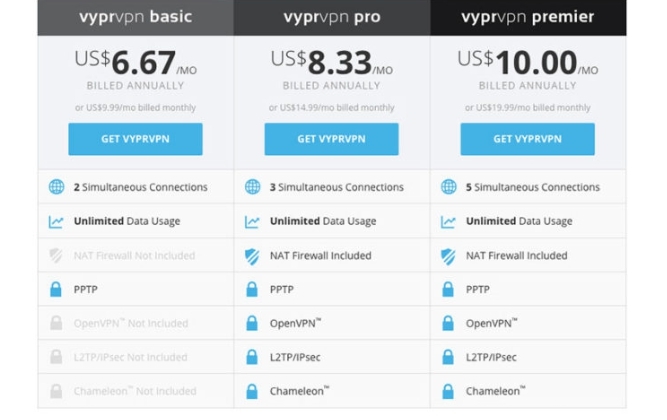Comparison of the different protocols VPN, PPTP, L2TP, OpenVPN SSTP, IKEv2
About VPN Protocols:
What are VPN protocols? In simple terms, protocols are a way of connecting your device to a VPN server. PrivateVPN supports many protocols. If you are using a VPN app, configure it to automatically select a VPN protocol that is best suited for your network. If you are not using an app or the connection is not suitable, try the following protocols in this order:OpenVPN with UDP/TCP
OpenVPN is your first choice. OpenVPN offers different types of authentication methods and uses a secure SSL/TLS protocol for key exchange. OpenVPN provides faster access rates than L2TP but is not supported by all devices.OpenVPN over TCP, or Transmission Control Protocol, is the most reliable type of VPN connection. This connection uses error correction and thus avoids website failures and incomplete downloads by automatically retransmitting information packets during data transfer.
OpenVPN on UDP, or User Datagram Protocol, is generally faster than TCP because it does not have the error correction function. Web technologies that rely on real-time interaction, such as an online game, work better in interruptions caused by data retransmission.
L2TP/IPsec
The combined use of L2TP and IPsec offers better security than PPTP, but these protocols are slower than OpenVPN and can eventually be blocked by firewalls.L2TP, or Layer 2 Tunneling Protocol, was developed as an upgrade of L2F (Layer 2 Forwarding Protocol) and PPTP (Point-to-Point Tunneling Protocol). L2TP does not itself offer powerful authentication or encryption: it is therefore used in conjunction with IPsec. L2TP is ideally suited for mobile devices that are not compatible with OpenVPN.
IPsec, or Internet Protocol security, authenticates and encrypts each packet of IP information in communication, providing a high level of end-to-end security. IPsec guarantees traffic protection for all applications on an IP network and is available for most mobile devices.
PPTP, or Point-to-Point Tunneling Protocol, one of the oldest protocols used today, it works well with older operating systems and mobile devices. This protocol is easy to configure and offers fast throughputs. PPTP may be vulnerable to some security issues, so it is only recommended for low-risk browsings, such as video and audio streaming.
IKEv2, or Internet Key Exchange version 2, is available on the latest mobile devices. Internet Key Exchange is a more secure version of the IPsec protocol. This VPN security protocol performs mutual authentication between two parties, allowing your devices to seamlessly switch between cellular and Wi-Fi networks without interrupting the connection.




Comments
Post a Comment